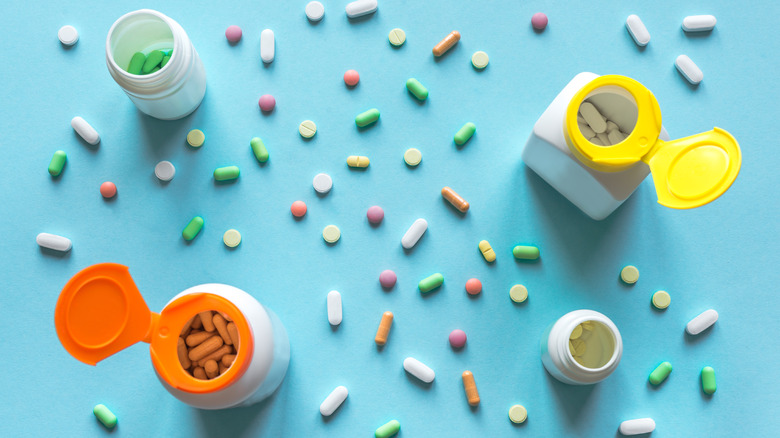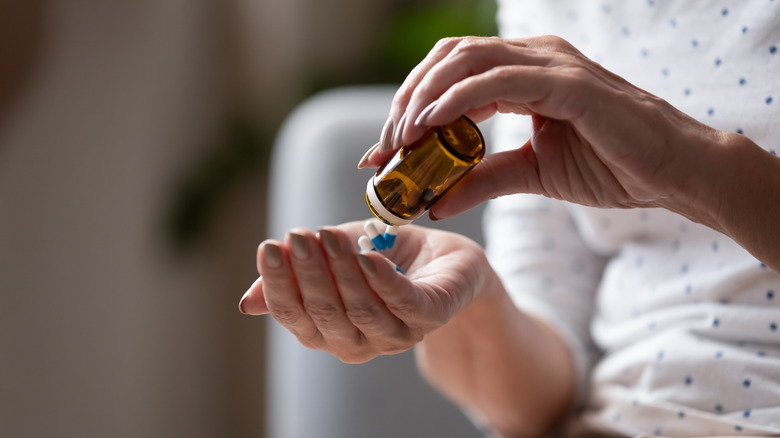Is Generic Medication Different From The Name Brand?
Prescriptions can add up quickly, leaving many of us trying to find the best deals on medications. You may have had a pharmacist ask you if you would like the generic version of a medication when filling a prescription. Nine out of 10 prescription drugs filled in the United States are for generic drugs, as the generic versions cost 85% less than the brand names (via FDA).
You may be concerned about the differences between generic and name-brand medications, but rest assured: Generic drugs are a cheaper alternative and work the same way as their name-brand counterparts. The U.S. Food and Drug Administration regulates generic drugs for dosage form, safety, strength, route of administration, quality, performance characteristics, and intended use.
While they may be cheaper, generic medications still have to undergo the same rigorous standards as name-brand drugs. Generic drug companies also have to prove they can manufacture the drug consistently and package it properly (via FDA). However, that's not to say generic drugs don't differ at all from name brands.
Differences between generic and name-brand medications
Generic medications have the same active ingredient as their branded variety, differences in color, flavorings, inactive ingredients, packaging, and shape can be expected (via GoodRX). These differences exist is in part due to trademark laws, but overall, the labels are required to be about the same, with some exceptions due to patents or exclusivity rights, according to the FDA.
Ready to save some money and switch to generics? Well, unfortunately, not all medications have a generic version, as the brand medication is considered the "innovator" and gets the "patent and exclusivity protection." This means generic medications won't be available right away (via Healthline).
You may also want to consult with your doctor to see if you should stick with a particular name-brand medication or go with a generic. Potential reasons could be that your body did not respond to the generic version, your symptoms worsened, or you had an allergic reaction or side effect to an inactive ingredient.


